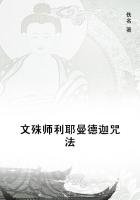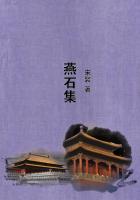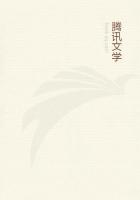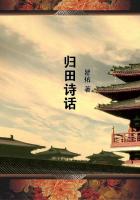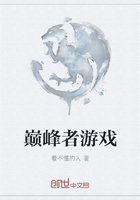YESTERDAY was a day of encounters.
First, early in the morning, a young girl came down the road on a bicycle.Her dressguard was loose, and she stopped to ask for a piece of string.When I had tied it for her she looked at me, at my worn dusty clothes and burnt face; and then she took a Niphetos rose from her belt and laid it shyly in my dirty disfigured palm.
I bared my head, and stood hat in hand looking after her as she rode away up the hill.Then I took my treasure and put it in a nest of cool dewy grass under the hedge.ECCE ANCILLA DOMINI.
My next visitor was a fellow-worker on his way to a job at the cross-roads.He stood gazing meditatively at my heap of stones.
"Ow long 'ave yer bin at this job that y'ere in such a hurry?"I stayed my hammer to answer - "Four months.""Seen better days?"
"Never," I said emphatically, and punctuated the remark with a stone split neatly in four.
The man surveyed me in silence for a moment; then he said slowly, "Mean ter say yer like crackin' these blamed stones to fill 'oles some other fool's made?"I nodded.
"Well, that beats everything.Now, I 'AVE seen better days; worked in a big brewery over near Maidstone - a town that, and something doing; and now, 'ere I am, 'ammering me 'eart out on these blasted stones for a bit o' bread and a pipe o' baccy once a week - it ain't good enough." He pulled a blackened clay from his pocket and began slowly filling it with rank tobacco; then he lit it carefully behind his battered hat, put the spent match back in his pocket, rose to his feet, hitched his braces, and, with a silent nod to me, went on to his job.
Why do we give these tired children, whose minds move slowly, whose eyes are holden that they cannot read the Book, whose hearts are full of sore resentment against they know not what, such work as this to do - hammering their hearts out for a bit of bread? All the pathos of unreasoning labour rings in these few words.We fit the collar on unwilling necks; and when their service is over we bid them go out free; but we break the good Mosaic law and send them away empty.What wonder there is so little willing service, so few ears ready to be thrust through against the master's door.
The swift stride of civilisation is leaving behind individual effort, and turning man into the Daemon of a machine.To and fro in front of the long loom, lifting a lever at either end, paces he who once with painstaking intelligence drove the shuttle.THEN he tasted the joy of completed work, that which his eye had looked upon, and his hands had handled; now his work is as little finished as the web of Penelope.Once the reaper grasped the golden corn stems, and with dexterous sweep of sickle set free the treasure of the earth.Once the creatures of the field were known to him, and his eye caught the flare of scarlet and blue as the frail poppies and sturdy corn-cockles laid down their beauty at his feet; now he sits serene on Juggernaut's car, its guiding Daemon, and the field is silent to him.
As with the web and the grain so with the wood and stone in the treasure-house of our needs.The ground was accursed FOR OUR SAKEthat in the sweat of our brow we might eat bread.Now the many live in the brain-sweat of the few; and it must be so, for as little as great King Cnut could stay the sea until it had reached the appointed place, so little can we raise a barrier to the wave of progress, and say, "Thus far and no further shalt thou come."What then? This at least; if we live in an age of mechanism let us see to it that we are a race of intelligent mechanics; and if man is to be the Daemon of a machine let him know the setting of the knives, the rise of the piston, the part that each wheel and rod plays in the economy of the whole, the part that he himself plays, co-operating with it.Then, when he has lived and served intelligently, let us give him of our flocks and of our floor that he may learn to rest in the lengthening shadows until he is called to his work above.
So I sat, hammering out my thoughts, and with them the conviction that stonebreaking should be allotted to minor poets or vagrant children of nature like myself, never to such tired folk as my poor mate at the cross-roads and his fellows.
At noon, when I stopped for my meal, the sun was baking the hard white road in a pitiless glare.Several waggons and carts passed, the horses sweating and straining, with drooping, fly-tormented ears.The men for the most part nodded slumberously on the shaft, seeking the little shelter the cart afforded; but one shuffled in the white dust, with an occasional chirrup and friendly pressure on the tired horse's neck.

